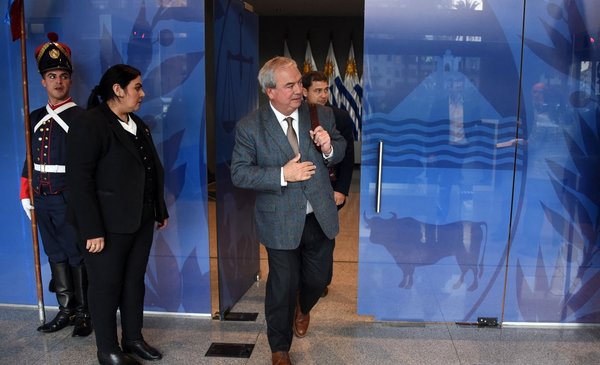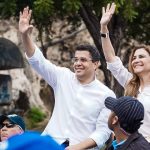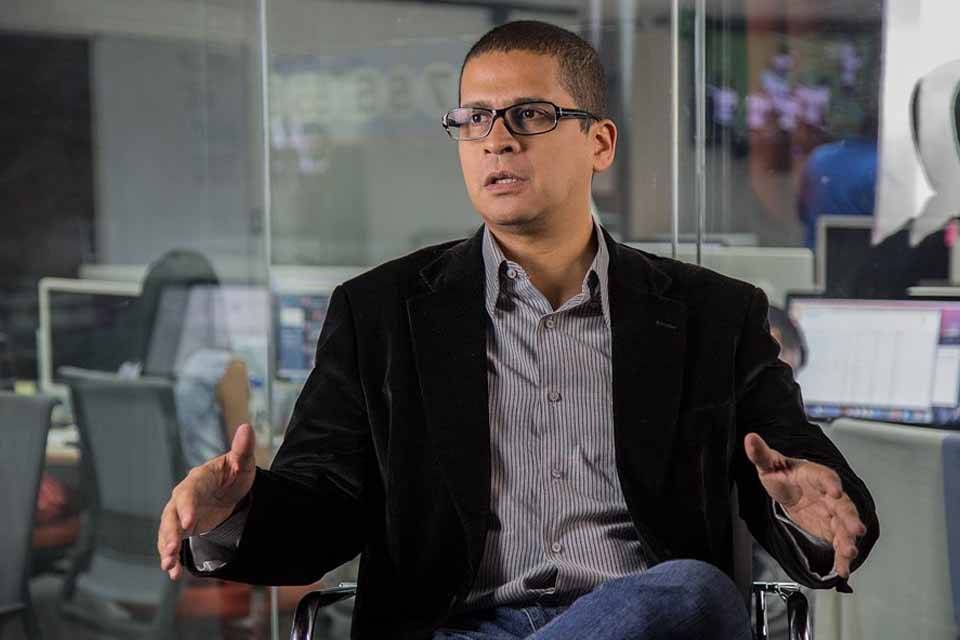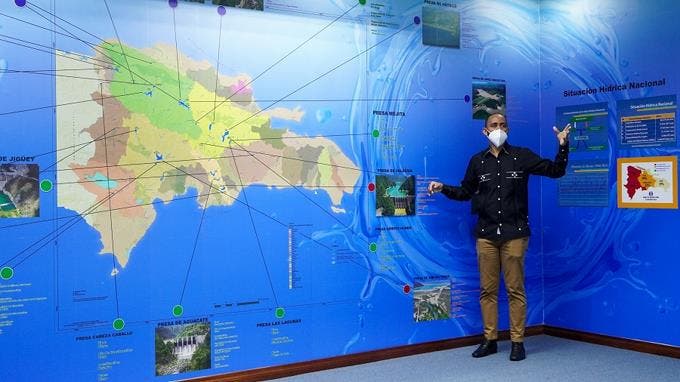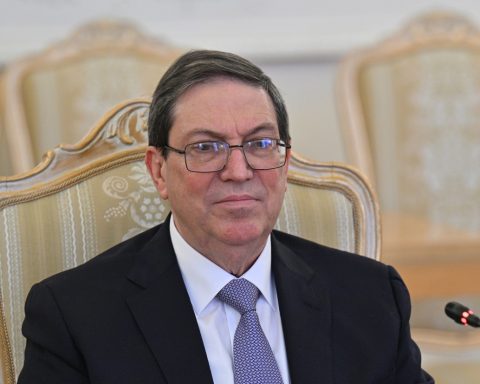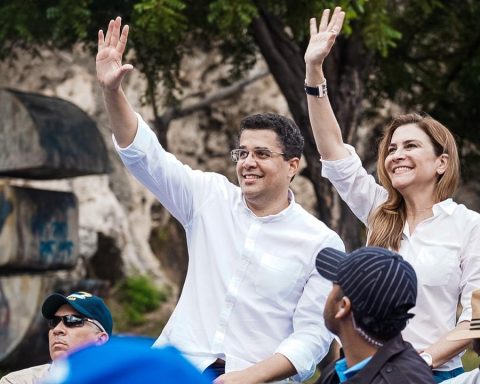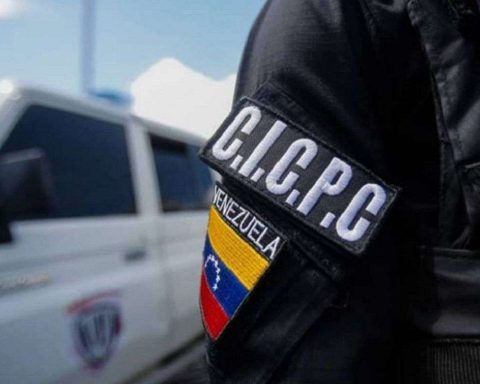The debate about security had a change of tone this week. It is not that before there were no criticisms or streaks of violence. Nor is it that something specific has opened the eyes of the ruling party. But the sequence of homicides of the last few days had a deep impact on the government coalition, which for two years had the results in security as a workhorse, and now admits a scenario of growing “concern”.
The 16 murders in ten days they dragged the Executive Branch into an uncomfortable position to which it had not been accustomed and which is far, even, from its position until not many weeks ago, when since the “No” campaign the positive changes in security were raised high to defend the Law of Urgent Consideration (LUC).
In the multicolored coalition they admit for these hours that the escalation of violence, added to the quarterly numbers that showed an increase in homicides compared to the previous year, reveal a difficult trend in the fight against crime, according to what they told The Observer different leaders of the partner parties of the government.
Adjectives have their nuances. The senator and president of Cabildo Abierto, Guillermo Domenech, even describes the wave of homicides as “unprecedented in the country”; the nationalist Sebastián Da Silva prefers to speak of a “complex week” that it requires “a change of attitude”; the deputy of the Independent Party, Iván Posada, says that there is a “notorious increase” in the murders. Others, who opt for reserve, agree in describing “recruitment of brutality” and in describing the series of murders as “very hard for the government”.
Contrast
The widespread conclusion is that these days security is no longer something easy to talk about. until a few weeks ago the issue had been an asset in the direction of the ruling party that had materialized after a strong imprint of support for the police hierarchy and after a sustained decline in various indicators. The administration of Minister Jorge Larrañaga was one of the best valued and security had fallen in the weighting of the main problems of Uruguayans, according to the surveys.
But the string of recent days required stronger political signals. Luis Lacalle Pou and Minister Luis Alberto Heber met this Wednesday at the Executive Tower To evaluate the current scenario and prior to the meeting, the Secretary of State acknowledged that the president was asking for “results” and that it was good that it be so.
Heber presented in that instance a plan to the president to contain the homicides, justified the rise in homicides in the “very tough” dispute between drug gangs and said he had the support of Lacalle Pou. This was ratified by the different figures of the coalition parties consulted by The Observer They said that the entire government supports the direction of the Ministry of the Interior, beyond the concern about the evolution of crimes.
The minister’s view – questioned by the opposition – is that the rise in the number of murders that has been processed in recent days is due to a successful drug policy, which led to a shortage of substances and the collection that it entailed, so that the battles for the low supply became more virulent. The escalation in homicides since the beginning of May adds to the slight increase in this crime in the second half of 2021 and the strong momentum in the first quarter of 2022, when it registered a growth of 33% compared to the same period of the previous year. “We have presented the numbers when we are doing well and when we are not doing so well”Heber slipped on that occasion, regarding the results obtained in the most violent crime.
Although those figures also revealed a decrease in the number of complaints of robbery and cattle rustling – an argument that the Interior chief recalled after the meeting with the president to defend that there had not been an increase in violence – in recent days the statements and political movements showed that security management also became a flank in government management. For this reason, in the leadership of the Executive they intend – in addition to improving the results in the containment of crime – to avoid missteps in communication with citizens.
In April, just after the referendum, insecurity appeared as the country’s main problem for only 12% of the Uruguayans, and as the second problem for 20%, according to a survey by Equipos, which put the economic aspects in the first places of concern for public opinion.
For its part, a report by the Usina de Percepción Ciudadana carried out in the last week and published by La Diaria warned that almost half (45%) of the population perceives that insecurity increased compared to 2021. 38% said they felt just as insecure and only 14%, meanwhile, said that it had decreased. Perception is more critical when evaluating the increase in homicides: according to the report, 65% perceive that murders increased compared to the previous year and only 4% that they decreased.
The criticism of the FA
The opposition deepened its criticism in recent days, both for the succession of homicides and the other for the management led by Heber as head of the security portfolio. The president of the Broad Front, Fernando Pereira, said that “There is part of the actions of the Ministry of the Interior that does not coincide with what should happen in Uruguay” and stressed that insecurity is “a serious problem that no one can solve alone.” The former leader of the PIT-CNT even said that “people today must yearn to live in 2019”, in reference to the Front’s administration, which culminated in high levels of disapproval from public opinion.
These criticisms, similar to those that the then opposition and now the government made to the Broad Front, also marked a change in the tone of the left regarding security, where until now the questions had focused on possible police abuses rather than on the crime increase.
The axis of the speeches of the leaders of the Front during the LUC discussion on issues of the Ministry of the Interior revolved fundamentally around the debate on police discretion and the repeated idea of “easy trigger”.
In the government, however, these assessments are not echoed and in addition to claiming the course, they understand that the criticism of the opposition is not acceptable for what the multicolors inherited in terms of security. In this sense, political leaders repeated the metaphor that “you have to look at the film” and “not the photo” and that this longer trajectory reflects, beyond the homicides this week, good results for the government.
